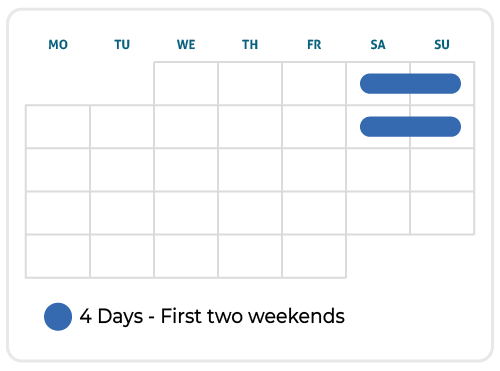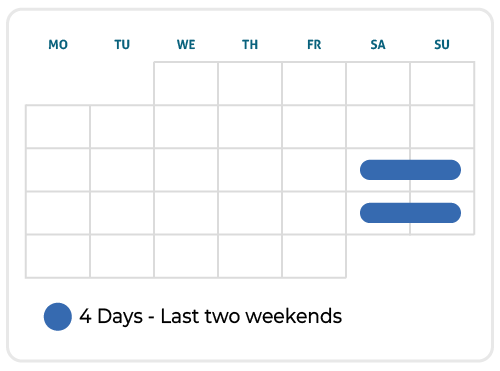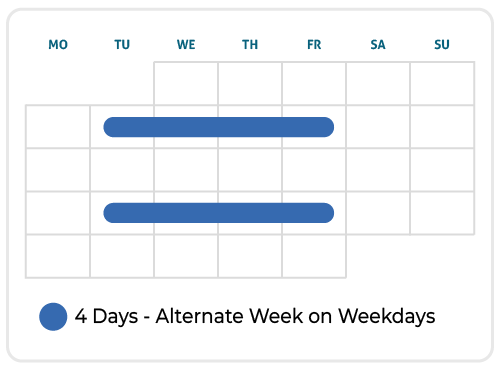Machine Learning Training Program Overview Dallas, TX
You've read the books, run Jupyter notebooks, and built some models - but struggle in interviews that demand explaining the math behind XGBoost, optimizing production pipelines, or handling multi-terabyte datasets common in Dallas, TXe-commerce, banking, and telecom. Your skills are academic; the industry requires actionable, deployable machine learning models. Our Machine Learning Training Program is designed by working Machine Learning Engineers who solve real-world problems like model drift, GPU limitations, and accuracy vs. F1-score trade-offs. Learn the machine learning algorithms, mathematical intuition, robust data preprocessing pipelines, and model selection rigor that turns raw data into predictive revenue. Unlike basic tutorials, this machine learning course builds full-stack ML capability. You'll learn to construct production-grade feature stores, conduct A/B testing, tune hyperparameters, and deliver measurable business impact - skills that matter for machine learning engineer jobs and higher machine learning engineer salary roles. This program is tailored for working professionals in Dallas, TX. Expect interactive weekday evening and weekend batches, live coding with Q&A, recorded sessions, access to large-scale Dallas, TX datasets (banking fraud, telecom churn), 24/7 expert support, and a portfolio of high-impact machine learning projects. Enroll in Machine Learning Certification - Master machine learning and deep learning, understand machine learning definition, gain expertise in machine learning AI, and confidently handle machine learning interview questions to land top machine learning jobs.
Machine Learning Training Course Highlights Dallas, TX
Deployable Skills Focus
Gain proficiency in production-ready tools like Scikit-learn, TensorFlow, PyTorch, and cloud platforms essential for real-world ML engineering.
Taught by ML Engineers
Unlock your potential with expert instructors who are actively building and deploying models in high-velocity tech companies across Dallas, TX.
Flexible Schedule for Developers
Aim for certification and choose a training schedule that fits your demanding coding time with weekday-evening, weekend, or accelerated tracks.
Performance-focused Training
Master the concepts fast with 100+ hours of hands-on coding labs, individualized project feedback, and rigorous deployment challenges.
Exhaustive Practice Materials
Get on top of your weaknesses with 1800+ tailor-made technical questions covering math, concepts, and deployment best practices.
24x7 Expert Guidance & Support
Be worry-free as certified ML practitioners are available 24x7 to solve your complex coding doubts and project bottlenecks.
Corporate Training

Ready to transform your team?
Get a custom quote for your organization's training needs.
Upcoming Schedule



Skills You Will Gain In Our Machine Learning Training Program
Robust Data Preprocessing
Learn to handle the 80% of data science that is cleaning. You will master techniques for imputation, feature engineering, and dealing with massive, non-uniform datasets common in Dallas, TX industry.
Model Selection & Regression Mastery
Stop guessing. You will learn the mathematical foundations and practical trade-offs of Linear, Ridge, Lasso, and Time Series models, enabling accurate predictive forecasting.
Advanced Classification Techniques
Master the deployment of high-impact models like Support Vector Machines (SVMs), Random Forests, and the crucial Gradient Boosting algorithms (XGBoost, LightGBM).
Unsupervised Learning & Clustering
Learn to find hidden insights in customer data or anomaly detection. You will develop practical skills in K-Means, Hierarchical Clustering, and Principal Component Analysis (PCA).
Model Hyperparameter Tuning
Learn to cut through the noise of generic settings. You will master Grid Search, Random Search, and Bayesian Optimization to squeeze maximum performance out of your production models.
Deep Learning Fundamentals
Gain a practical introduction to building and training Neural Networks, understanding activation functions, backpropagation, and basic architectures for image/text data.
Who This Program Is For
Data Analysts
Software Engineers
Statisticians
Business Intelligence (BI) Professionals
IT Architects
Research Scientists
If you lead projects and meet PMI's mandatory experience requirements, this program is engineered to get you certified.
Machine Learning Certification Training Program Roadmap Dallas, TX
Why get Machine Learning-certified?
Stop Getting Filtered Out
Stop getting filtered out by HR bots and hiring managers looking for demonstrable, production-ready ML skills beyond basic Python knowledge.
Unlock Higher Salary Bands and Bonuses
Unlock the higher salary bands and bonus structures reserved for professionals who can build, tune, and deploy predictive intelligence at scale.
Transition to Strategic Model Architect
Transition from a tactical coder to a strategic model architect who delivers measurable ROI and gains a seat at the product strategy table.
Eligibility & Prerequisites
Because this is a capability-focused certification, there are fewer bureaucratic prerequisites and more practical skill requirements. The industry demands competence, not paper. Here is the blunt breakdown of what you need to succeed in the program:
Strong Foundational Mathematics: A working knowledge of Linear Algebra, Calculus (derivatives/gradients), and Probability/Statistics is non-negotiable. We offer a refresher, but the foundation must exist.
Programming Proficiency: Mandatory comfort with Python (or similar) and its core data libraries (NumPy, Pandas). This is a coding-heavy program.
Discipline for Depth: This is not a high-level overview. You must commit to understanding the mathematical intuition behind algorithms, as this is what separates a model deployer from a model user.
Experience is Preferred, not Mandatory: While no formal experience is strictly required to begin, you will need to complete several challenging, industry-grade projects to master the material and pass the final assessment.
Course Modules & Curriculum
Regression Mastery
Deep dive into the mathematics and practical use of Linear Regression, Polynomial Regression, and Regularization techniques (Lasso, Ridge) to prevent overfitting in machine learning models. Essential knowledge for any Machine Learning Engineer aiming to excel in machine learning engineer jobs and understand machine learning algorithms.
Core Classification Algorithms
Master the intuition and application of Logistic Regression, K-Nearest Neighbors (KNN), and Naive Bayes for practical classification problems like churn prediction and risk scoring. Learn to evaluate models using metrics beyond simple accuracy.
Ensemble Methods and Tree-Based Models
Explore advanced ensemble techniques such as Bagging (Random Forest) and Boosting (AdaBoost, XGBoost). Understand the difference between these machine learning algorithms and how to select the right method for machine learning projects and production-ready machine learning models.
Rigorous Model Evaluation
Master the metrics that matter: Precision, Recall, F1-Score, ROC-AUC, and Confusion Matrices. Learn how to execute robust cross-validation, and perform A/B testing on competing models in a production environment.
Clustering Techniques
Gain practical skills in Unsupervised Learning by mastering K-Means, DBSCAN, and Hierarchical Clustering. Learn how to interpret the results to gain actionable insights into customer segmentation and fraud detection.
Introduction to Time Series Analysis
Understand the unique challenges of sequential data. Gain exposure to foundational Time Series models (ARIMA, Prophet) used for forecasting key business metrics like sales or inventory in city83647 businesses.
Model Serialization and Deployment
Learn to save and deploy trained machine learning models using Pickle or Joblib, and expose them as live APIs with Flask or Django. This practical skill is crucial for Machine Learning Engineers aiming to stand out in machine learning engineer jobs and maximize machine learning engineer salary potential.
Model Monitoring and Maintenance
Understand how to monitor model performance in production to detect model drift and concept drift - the silent killers of real-world ML ROI. Learn strategies for retraining and version control.
Introduction to MLOps
Gain hands-on insight into the MLOps lifecycle. Understand automation, CI/CD pipelines for machine learning algorithms, and architectural considerations for deploying scalable machine learning models on cloud platforms like AWS, Azure, or GCP.
Neural Network Architecture
Master the foundational components of Deep Learning: layers, activation functions, optimizers, and the backpropagation algorithm. Build and train your first basic Neural Network using TensorFlow/Keras.
Practical Deep Learning Models
Gain exposure to simple Convolutional Neural Networks (CNNs) for image data and Recurrent Neural Networks (RNNs) for sequential/text data. Focus on their practical application and when to use them over traditional ML.
Final Certification Review & Portfolio Finalization
Consolidate your knowledge across all coding, mathematical, and deployment domains. Complete final comprehensive practice assessments and polish your mandatory portfolio projects, ensuring maximum impact for recruiters.





